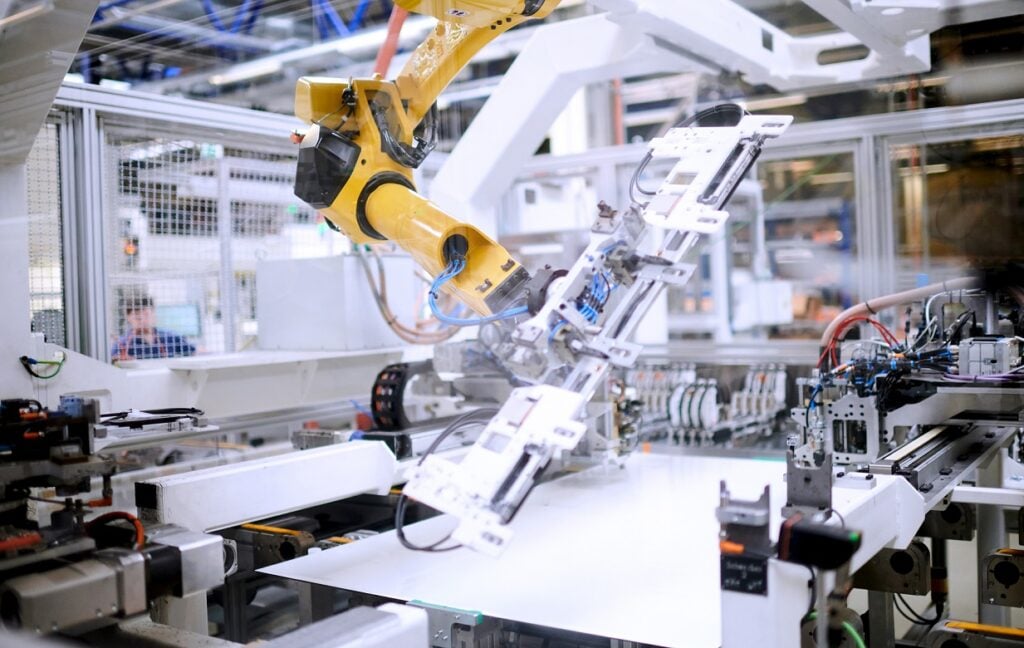
The European Parliament and European Council have agreed on new regulations to support strategic net zero technologies including batteries and energy storage.
The regulations are partly aimed at boosting the fortunes of the European Union’s (EU’s) solar manufacturing sector, amid concerns about the viability of the European solar manufacturing sector. Batteries and energy storage, grid technologies and electrolysers and fuel cells are among the other key technologies selected for support.
Enjoy 12 months of exclusive analysis
- Regular insight and analysis of the industry’s biggest developments
- In-depth interviews with the industry’s leading figures
- Annual digital subscription to the PV Tech Power journal
- Discounts on Solar Media’s portfolio of events, in-person and virtual
Under the Net Zero Industry Act (NZIA), member states of the EU will be required to apply non-price pre-qualification criteria and award criteria for renewables projects, including responsible business conduct, cybersecurity, data security and the ability to deliver the project fully and on time.
These new criteria will need to apply to at least 30% of the volume auctioned in the member states every year, and industry leaders are optimistic that this will encourage the adoption of more renewable power projects.
The act also regulates the purchase of net zero technology products, including solar modules, as member states of the EU can only source 50% of the modules in auctions from a single country per year.
In addition, both the European Parliament and Council agreed on fast permit-granting processes. In the future, the time limit for permitting construction or expansion of manufacturing projects with a capacity of larger than 1GW will be 18 months. For projects smaller than 1GW, the time limit will only be 12 months. However, shorter deadlines will be set for strategic projects.
The regulation will also promote the development of net zero acceleration valleys, defined by as territories that “concentrate several companies involved with a certain technology”. These valleys aim to create clusters of net zero industrial activities, increasing the attractiveness of the EU as a location for manufacturing activities and further streamlining the administrative procedures for setting up net zero manufacturing capacity.
The agreement is provisional and needs to be endorsed and formally adopted by the EU Council and the European Parliament institutions.
Trade association Solar Power Europe said that “it is good news” that the act will be revised in coming years, but reiterated the need for immediate actions to safeguard the European solar manufacturing industry.
“But let us be very clear: while landing the NZIA sends a strong signal to EU solar manufacturers, it doesn’t negate the need for emergency support. Manufacturers have weeks left to survive, this emergency requires urgent action from EU and national authorities,” added Acke.
The European Parliament voted to adopt their position of the NZIA legislation on 21 November 2023, which will seek to onshore manufacturing for renewable energy technologies like solar PV, battery energy storage and wind to the EU. Our sister site PV Tech has been covering the news and related articles can be read here.
This story first appeared on PV Tech.
Energy-Storage.news’ publisher Solar Media will host the 9th annual Energy Storage Summit EU in London, 20-21 February 2024. This year it is moving to a larger venue, bringing together Europe’s leading investors, policymakers, developers, utilities, energy buyers and service providers all in one place. Visit the official site for more info.






